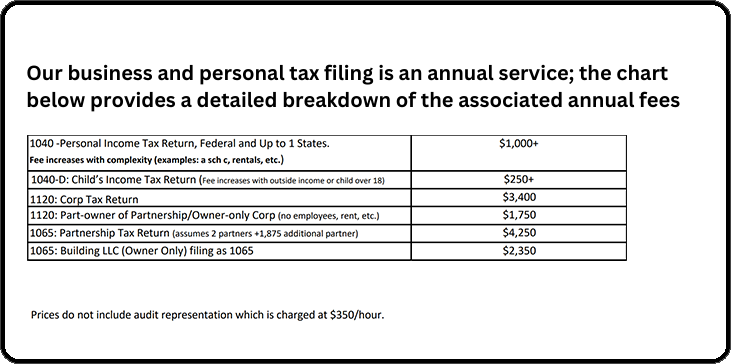Tune in to our podcast series: The Dental Board Room
Listen Now

In today's interconnected world, scams and online frauds have become increasingly sophisticated and prevalent. The dental industry is no exception to this deceit.
We share the story of a dentist we personally know here at PracticeCFO, who ended up being the target of this very crime. Read on to hear their experience and learn valuable insights on how you can protect yourself from falling victim to similar scams.
Please note, while this article is meant to be informative, it should by no means be taken as legal advice. If needed, please consult with a dental attorney or legal professional for further guidance
A month ago, this dentist - who we will keep anonymous - was contacted by someone who claimed to be a DEA (Drug Enforcement Administration) agent. It all started with a seemingly innocuous phone call to their dental office. An individual, impersonating a DEA agent, had set up an appointment to speak with them. A few days later, the dentist took the call, and the imposter began their web of deceit. He claimed that two criminals had been apprehended with narcotics, along with handwritten prescriptions that bore their DEA number, NPI number, license number, and even their signature.
Due to how sophisticated this scam was, the dentist complied with his request to send a copy of a prescription with their signature. They provided him with all the information he "claimed to have" - but didn't actually possess. They were drawn into the charade by the gravity of the situation, their concern for their reputation, and fear for their personal safety. Just as the imposter wanted.
As anxiety grew, so did the realization that something seemed a bit off. The dentist luckily had a connection to a former FBI agent, who they ended up reaching out to for input. Immediately, the FBI agent recognized that this was an elaborate scam. Realizing the gravity of the mistake, the dentist immediately cut off communication with the scammer and reported them to the FBI. They are now awaiting further guidance from them and contemplating reaching out to the DEA as well. Thankfully, no major damage had been done.
What exactly can dentists take away from this story? What measures can they take to keep themselves, and their practice, safe?
We have seen instances where dentists have had to shell out tens of thousands of dollars because they fell victim to a scam or a hack. While it's fortunate that this incident didn't escalate to that level, it was still a chilling experience that shook this dentist's sense of security and trust.
It serves as a stark reminder that in today's digital age, scammers are increasingly cunning. By sharing this story, we hope to raise awareness on the dangers of impersonation scams and encourage all dentists to remain vigilant and cautious in their online interactions. Remember, it's always better to err on the side of caution when dealing with unfamiliar situations, especially when they involve personal or financial information.
Wes knows what's best for dental practices. He's been doing this for a long time and he sees lots of practices. He can tell me how our practice is doing, and what we can do to increase our productivity. With past CPA's, there were no ideas. It was all coming from me, saying "I think I can do better, but I don't know how." I come in to meet with Wes and he says "You CAN do better, and I know how."
PracticeCFO is in hundreds of dental offices around the country. They know what numbers should look like. They know what percentages of payroll, rent and supplies should be, and they will hold you accountable to those numbers, which will really help you stick to your plan and your path of growth and savings. That is invaluable
Whenever something comes up, whether it's building or practice related and we weren't sure where the numbers would go, PracticeCFO has been instrumental in helping us figure that out. I can't say enough of how important that is - that it goes beyond that initial partnership. They make sure this business marriage works.
When I go home from work, I don't spend a whole lot of time stressing about what my books look like, or how much I owe in taxes. By using PracticeCFO, the burden of keeping track of a lot of the big financial numbers and metrics are taken off my plate.
PracticeCFO helped me develop a plan for the future. I have colleagues that work with other accountants that don't have a plan - they just look at the numbers of the practice and that's it. There's no plan for 10, 20 years from now. But with PracticeCFO, you get that. PracticeCFO makes you feel like you're they're only client.
(In reference to his practice sale) What could've been super stressful, wasn't! When picking John and Wes, it was from word of mouth recommendations and other people's experiences from the past that really did it for me. And it turns out that those recommendations were right on the line.
Wes knows the business side of dentistry. His comprehensive plan will organize your personal and professional finances so you can focus on taking care of patients. Massive ROI.
I can’t say enough good things about everyone at PracticeCFO. Everyone on the team is professional, organized, knowledgeable, helpful and kind. They also respond to emails and phone calls immediately and are always happy to help. They have helped me navigate year-to-year as a business owner. PracticeCFO gives me peace of mind that my business is in good hands.
I love Practice CFO! They have helped me obtain a practice and maintain a practice. They are incredible people who are on top of everything and make owning and running the business portion of a practice easy. They couldn’t be better for my business and my sanity. They have every detail of the business and taxes taken care of where all I have to do is show up and follow their easy steps to success!
Practice CFO has the best tools I’ve seen for personal tax and financial planning in addition to top-tier corporate tax and accounting services. I have been very pleased with the level of quality service. They manage my monthly bookkeeping and accounts payable. It is a great system and saves me a ton of time, and it allows us to have monthly financial statements within a week of month end.

This will close in 0 seconds